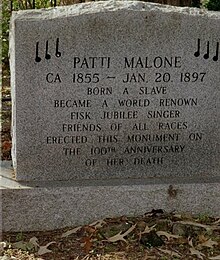Spirituals is a genre of Christian music that is associated with African Americans, which merged sub-Saharan African cultural heritage with the experiences of being held in bondage in slavery, at first during the transatlantic slave trade and for centuries afterwards, through the domestic slave trade. Spirituals encompass the "sing songs", work songs, and plantation songs that evolved into the blues and gospel songs in church. In the nineteenth century, the word "spirituals" referred to all these subcategories of folk songs. While they were often rooted in biblical stories, they also described the extreme hardships endured by African Americans who were enslaved from the 17th century until the 1860s, the emancipation altering mainly the nature of slavery for many. Many new derivative music genres such as the blues emerged from the spirituals songcraft.

Fisk University is a private historically black liberal arts college in Nashville, Tennessee. It was founded in 1866 and its 40-acre (16 ha) campus is a historic district listed on the National Register of Historic Places.
Jubilee quartets were popular African-American religious musical groups in the first half of the 20th century. The name derives from the Fisk Jubilee Singers, a group of singers organized by George L. White at Fisk University in 1871 to sing Negro spirituals. The members of the original Fisk Jubilee Quartet (1909–1916) were Alfred G. King, James A. Myers, Noah W. Ryder, and John W. Work II. Students at other historically black schools, such as Hampton Institute, Tuskegee Institute and Wilberforce University, followed suit. Many independent jubilee troupes also found inspiration in the Fisk Jubilee Singers, such as the Original Nashville Students.
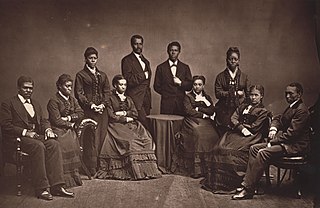
The Fisk Jubilee Singers are an African-American a cappella ensemble, consisting of students at Fisk University. The first group was organized in 1871 to tour and raise funds for college. Their early repertoire consisted mostly of traditional spirituals, but included some songs by Stephen Foster. The original group toured along the Underground Railroad path in the United States, as well as performing in England and Europe. Later 19th-century groups also toured in Europe.

Matilda Sissieretta Joyner Jones was an American soprano. She sometimes was called "The Black Patti" in reference to Italian opera singer Adelina Patti. Jones' repertoire included grand opera, light opera, and popular music. Trained at the Providence Academy of Music and the New England Conservatory of Music, Jones made her New York City debut in 1888 at Steinway Hall, and four years later she performed at the White House for President Benjamin Harrison. She sang for four consecutive presidents and the British royal family, and was met with international success. Besides the United States and the West Indies, Jones toured in South America, Australia, India, southern Africa, and Europe.

"Wade in the Water" is an African American jubilee song, a spiritual—in reference to a genre of music "created and first sung by African Americans in slavery." The lyrics to "Wade in the Water" were first co-published in 1901 in New Jubilee Songs as Sung by the Fisk Jubilee Singers by Frederick J. Work and his brother, John Wesley Work Jr., an educator at the historically black college in Nashville, Tennessee, Fisk University. Work Jr. (1871–1925)—who is also known as John Work II—spent thirty years collecting, promoting, and reviving the songcraft of the original Fisk Jubilee Singers, which included being a member and director of the Fisk Jubilee Quartet. The Sunset Four Jubilee Singers made the first commercial recording of "Wade in the Water" in 1925—released by Paramount Records. W. E. B. Du Bois called this genre of songs the Sorrow Songs. "Wade in the Water" is associated with songs of the Underground Railroad.
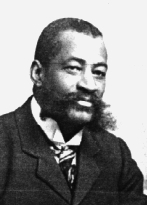
Frederick Jeremiah Loudin was the leader of the Loudin Jubilee Singers. His commanding presence and ambitious personality caused him to emerge as an unofficial spokesperson during the four years he toured with them. He later became internationally famous as the leader of his own brand of Jubilee Singers, the Loudin Jubilee Singers, who toured internationally.

Orpheus Myron McAdoo was an American singer and minstrel show impresario. He toured extensively in Britain, South Africa and Australia, first with Frederick Loudin's Jubilee Singers and then with his own minstrel companies.
America W. Robinson was an American educator. Robinson was in the first graduating class of Fisk University and sang as a contralto with the Fisk Jubilee Singers. She was the first woman to graduate from Fisk University.

Maggie Porter Cole (1853–1942) was a first-generation-freed slave, and she is most notable as an original member of the Fisk Jubilee Singers, one of only four members to participate in all three of the original tours by the group. She was known for her vocal talents as a soprano and also worked as a schoolteacher.

Matthew Washington Kennedy was an American classical pianist, professor, choral director, composer, and arranger of Negro Spirituals. He is widely known as the director of the historic Fisk Jubilee Singers of Nashville, Tennessee from 1957 to 1986.
Anne Gamble Kennedy was an American classical pianist, piano professor, and accompanist for the Fisk Jubilee Singers of Nashville, Tennessee.

Ella Sheppard was an American soprano, pianist, composer, and arranger of spirituals. She was the matriarch of the original Fisk Jubilee Singers of Nashville, Tennessee. She also played the organ and the guitar. Sheppard was a friend and confidante of African-American activists and orators Booker T. Washington and Frederick Douglass.
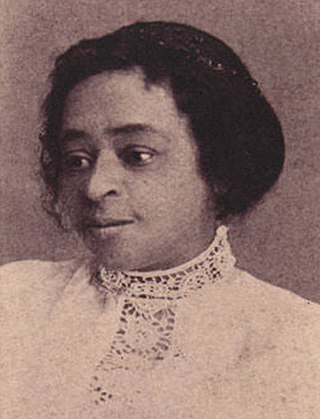
Mary Eliza Walker Crump was an African American contralto singer and manager, and one of the original Fisk Jubilee Singers.
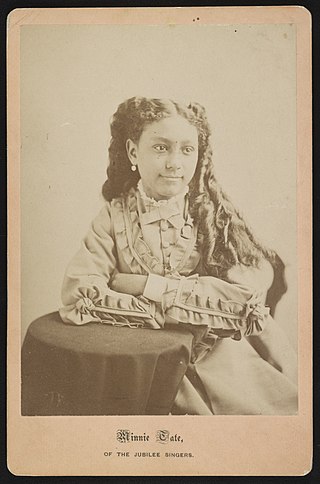
Minnie Tate was the youngest original member of the Fisk Jubilee Singers, based in Nashville, Tennessee.

Jennie Jackson was an American singer and voice teacher. She was one of the original members of the Fisk Jubilee Singers, an African-American a cappella ensemble. She toured with the group from 1871 to 1877. In 1891 she formed her own sextet, the Jennie Jackson Concert Company.
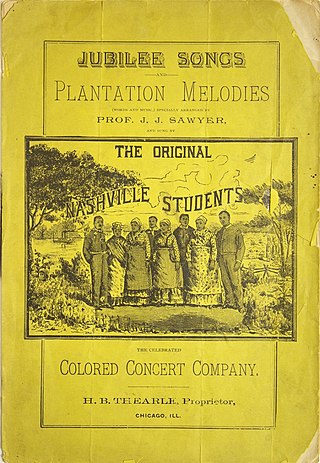
The Original Nashville Students, also referred to as the Original Tennessee Jubilee and Plantation Singers, the Nashville Students, and H. B. Thearle's Nashville Students, were an ensemble of eight or nine African-American jubilee singers. The moniker “jubilee singer” was coined by George White for his a cappella group The Fisk Jubilee Singers. This was primarily a reference to the Jewish year of jubilee described in Leviticus 25. Additionally, jubilation elicits connections with emancipation and liberation, drawing on emotions of nationalist pride from both African American and white audiences. Adopting this title allowed the singers to brand themselves as those who were formerly enslaved, but who had triumphantly risen out of their oppression.

Mary Fletcher Wells was a philanthropist, educator, and founder of the Trinity School. Wells was unable to formally matriculate at Michigan University and instead studied there under private tutelage. She taught in high schools and seminaries in Indiana.
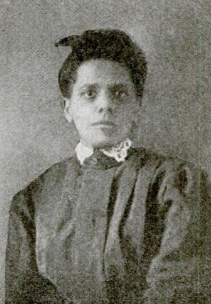
Alice Vassar LaCour was an American educator and singer.

Anita Patti Brown was an American concert singer. She was sometimes billed as "the Bronze Tetrazzini".
